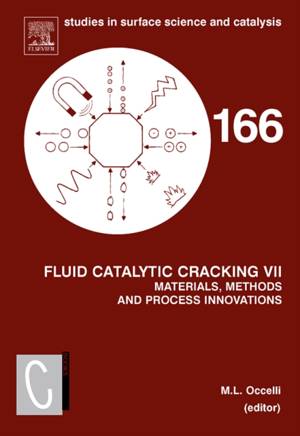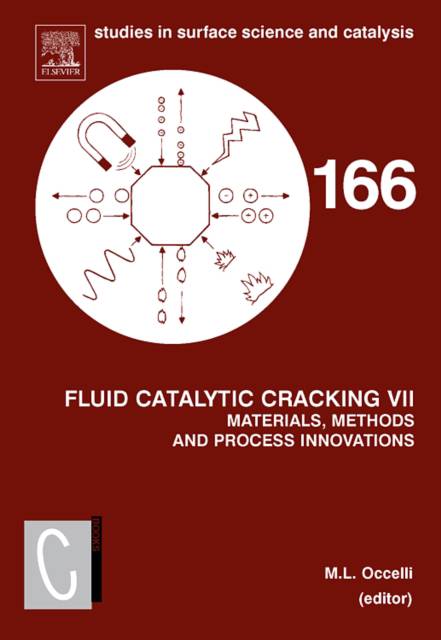
- Afhalen na 1 uur in een winkel met voorraad
- Gratis thuislevering in België vanaf € 30
- Ruim aanbod met 7 miljoen producten
- Afhalen na 1 uur in een winkel met voorraad
- Gratis thuislevering in België vanaf € 30
- Ruim aanbod met 7 miljoen producten
Zoeken
Fluid Catalytic Cracking VII:
Materials, Methods and Process Innovations Volume 166
€ 364,95
+ 729 punten
Omschrijving
Since 1987, the Petroleum Division of the American Chemical Society (ACS) has sponsored at 3 year intervals an international symposium on fluid cracking catalysts (FCC) technology. This volume collects the recent progress of this technology as reported in the papers presented during the 232th National Meeting of the ACS in San Francisco, September 10-14, 2006.Sixty-six years after the introduction of the fluid cracking catalyst process, it remains the main process of gasoline generation for the estimated 237 millions cars on US roads. Catalysts testing and evaluation still remains a subject of interest, debate and controversy. Lambda sweep testing, testing of SOx, NOx and combustion promoters have been discussed in details together with catalyst evaluation for atmospheric residues and metal contaminated oils cracking.Of particular interest has been the introduction of novel concept in process design aimed at improving cracked product selectivity such as two-stage risers for better gasoline and olefins production and downer technology for high severity processes . The importance of solid state nuclear magnetic resonance (NMR) in the study of crude oils, catalysts and reaction products are illustrated by several examples. Two contributions describe the use of predictive methods to understand FCC aging and deactivationand personal overviews of the development of SOx and combustion promoters technology are presented.
Specificaties
Betrokkenen
- Uitgeverij:
Inhoud
- Aantal bladzijden:
- 356
- Taal:
- Engels
- Reeks:
- Reeksnummer:
- nr. 166
Eigenschappen
- Productcode (EAN):
- 9780444530608
- Verschijningsdatum:
- 1/09/2007
- Uitvoering:
- Hardcover
- Formaat:
- Genaaid
- Afmetingen:
- 173 mm x 242 mm
- Gewicht:
- 780 g

Alleen bij Standaard Boekhandel
+ 729 punten op je klantenkaart van Standaard Boekhandel
Beoordelingen
We publiceren alleen reviews die voldoen aan de voorwaarden voor reviews. Bekijk onze voorwaarden voor reviews.







